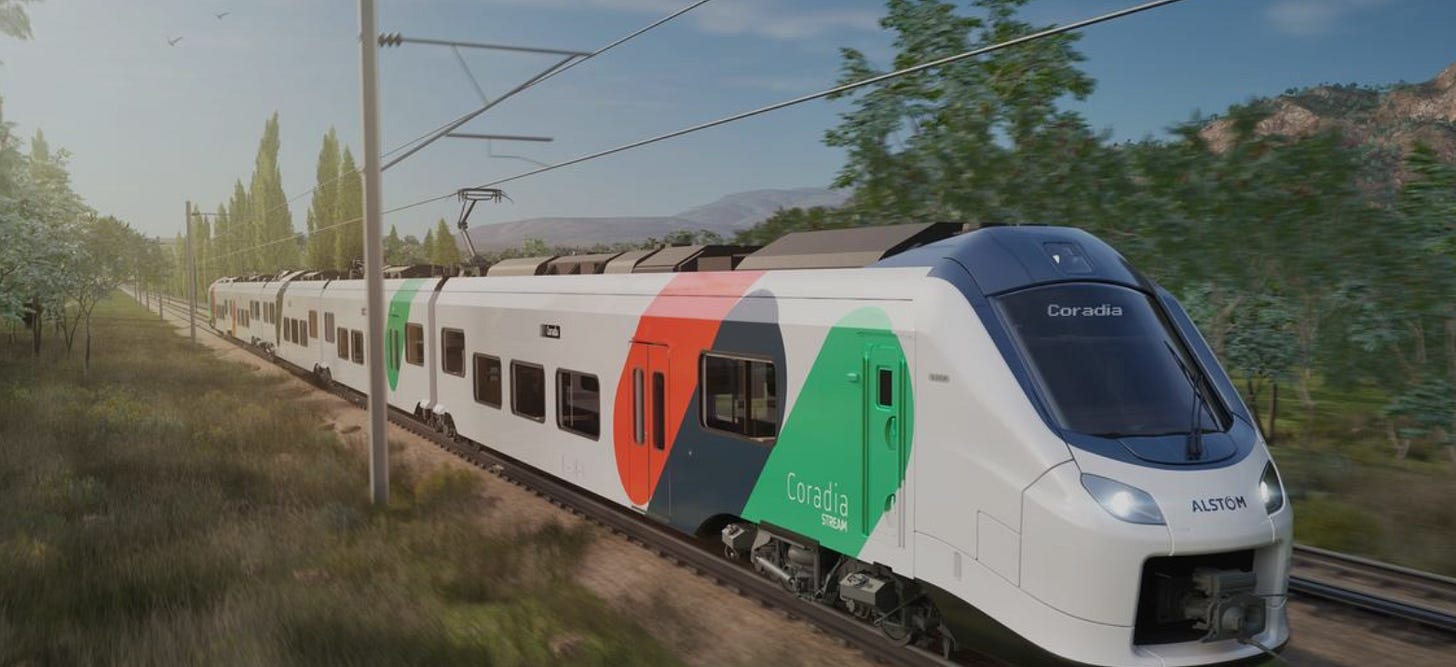Portuguese operator signs EUR 746 million train deal after 20-month legal battle

Comboios de Portugal has signed a EUR 746 million contract with Alstom and Portuguese partner DST for 117 electric multiple units, ending a legal deadlock that delayed fleet modernization by 20 months and cost the country an estimated EUR 191 million in lost EU funding, according to Portuguese outlet Observador.
The Portuguese state operator signed the contract on 15 October. The tender was awarded in November 2023, but legal challenges from competitors Stadler and CAF froze the procurement. Stadler’s challenge was dismissed in July 2025, followed by CAF’s in September 2025, clearing the path for contract signature.
The firm order covers 117 trains—62 urban and 55 regional units. The Portuguese government has mandated CP to activate an option for 36 additional units immediately, bringing the total commitment to 153 trains. Delivery will begin in the first quarter of 2029 over a 40-month period, with completion expected by mid-2032.
Fleet renewal addresses decades of underinvestment
The 153 new trains will renew 35% of CP’s passenger fleet and replace rolling stock on the Cascais line where some trains have operated for decades. Infrastructure Minister Miguel Pinto Luz called the agreement a “giant step to address rolling stock shortage” amid growing passenger demand.
CP emphasized the “strong delays” from court proceedings and stated it is studying measures to accelerate delivery beyond the 2029 baseline schedule.
Local manufacturing facility planned
Alstom will establish a rolling stock assembly facility in Matosinhos near Porto, with production involving components from its Barcelona plant and final assembly at the Guifões site in the Porto district, according to Portuguese government announcements.
Why it matters: The case demonstrates how legal challenges can freeze critical infrastructure investment for nearly two years, even when procurement rules are ultimately upheld. The funding loss from the EU’s Sustainable 2030 programme will require alternative state financing sources.
What’s next: CP faces pressure to negotiate earlier delivery dates with Alstom to compensate for the procurement delay, though accelerated timelines may prove challenging given the consortium’s European production capacity constraints.

